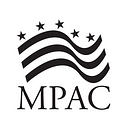AAMIC: Florida’s Anti-Woke Rhetoric and Curriculum Revisions are an Anti-Black Joke
By: Sister Katrina Hasan Hamilton, Ed.D Candidate and Member & Brother Umar Hakim-Dey, Chair | African American Muslim Insight Council (AAMIC)
The Florida State Board of Education recently released the African American History Standards for the upcoming school year — a controversial curriculum that has been met with pushback from parents and legislators alike. This revised curriculum, which includes readings that state “…slaves developed skills which, in some instances, could be applied for their personal benefit,” comes after last year’s passing of Governor Ron DeSantis’s Stop Woke Act — a law that he states “takes a stand against the state-sanctioned racism that is critical race theory.”
When Americans only reluctantly admit that the 400-year enslavement of Africans was an egregious act against humanity, or in the case of Florida, treat it as a courtesy that supposedly blessed enslaved Africans with an acquisition of skills, Black youth, and for that matter all youth, are conditioned to believe that slavery in America was humane.
Such disregard is not only inaccurate, but it fails to acknowledge the skill sets and genius (Muhammad, 2020) that African people, who hailed from great kingdoms and empires spanning all over West, Central, and Southern Africa, brought over to the Americas before they were enslaved. Misguided arguments against the so-called “woke” agenda that fails to acknowledge the full impact of slavery is a form of School-based Anti-Blackness (Hamilton, 2023), causing lasting anti-Black trauma and Racial Battle Fatigue (Smith, 2007) in Black students, families, and educators nationwide (Hamilton, 2023).
In the fight for acknowledging the humanity of Black Americans in schools, Dr. Carter G. Woodson emphasized how schools were breeding grounds for Anti-Black violence, providing evidence of how school curricula conditioned Black students to feel inferior to their non-Black peers (1933). Florida’s revised standards are now part of that curricula, inherently damaging the self-esteem of Black children (Godfrey et al., 2019) and hindering their ability to access well founded educational resources.
African Americans make up 16% of Florida’s population, and hate crimes motivated by race or skin color represented 50.4% of all reported hate crimes in the State of Florida as recently as 2020. At a time where our country is divided on numerous issues, including race, Governor DeSantis, a presidential candidate who is looking to be the next ‘leader of the free world,’ should be identifying ways to reduce animosity between races in the Sunshine State, and throughout our entire country, instead of instigating racial tensions and leveraging a culture war to score political points. These policies will have lasting repercussions for the next generation of Floridians while also setting precedent for other states.
While it has been nearly 200 years since it became legal for Black Americans to learn how to read or write, it has been less than 70 years since Black Americans were allowed to attend integrated schools. We cannot allow White hostility and fear to distort facts any longer. African American leaders and organizations will not tolerate legislative attacks on our dignity, nor the mistelling of the African American plight — which began with the first documented arrival of enslaved Africans in 1619 (Hannah-Jones, 2019).
All students, regardless of race, deserve a curriculum that not only explains the ways in which American businesses benefited from the enslavement of Africans, but also showcases the truth of the horrors of slavery to ensure history is never repeated.
MPAC’s African American Muslim Insight Council (AAMIC), based on its Islamic values of justice, equality, and truth, condemns the use of all Anti-Black curricula, policies, and laws that would further divide and/or increase racial tension in America.
